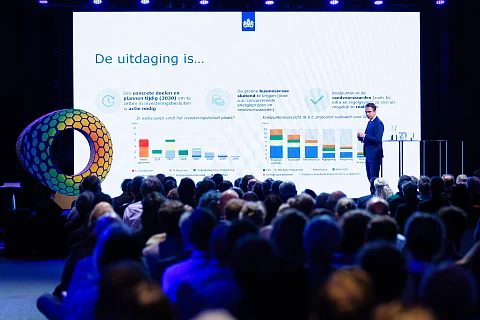Effective Use of Policy Measures
10-11-2024
Karlo Van Dam, director of sustainable industry at the Ministry of Climate and Green Growth, was almost attacked by entrepreneurs from the recycling industry after his speech. He had just explained how the government wants to support the green economy, partly to reduce CO2 emissions from industry by 66.5 percent in 2030 and to zero by 2050.
This is done through a mix of stimulation, standardization and pricing. For example, a mixing allowance for recyclate and biobased plastic, but also a levy on new plastic in 2028. "Next spring we will come up with a whole package of instruments to help the sector," he promised. At an EU level, the Netherlands wants to take measures against the import of cheap plastic and recyclate, but according to Van Dam this is terribly complicated. “That is why we are calling on the sector to increase the share of recycled plastic,” he says. “In this difficult situation, we must do what we can and what we can, but we cannot keep companies in business for very long with subsidies if there is no healthy business model.”
Petition
Is this enough to allow recycling companies to bridge the difficult years until the blending obligation? The sector doesn't think so. Numerous companies said during the conference that the Netherlands should already introduce such a standard and take the lead in Europe. Green Chemistry New Economy is working on a petition for the House of Representatives about the effective use of policy measures for both recyclate and bio raw materials. This builds on research by CE Delft, which concludes that there is now an uneven playing field between fossil and renewable fuels and raw materials. If that playing field becomes fairer, recycling companies will also benefit.

Everything from China
A company like Healix will again be supported by LIOF, the regional development agency for Limburg, in the near future, but if the situation lasts longer than six months, this will become difficult. State investment fund Invest-NL is afraid that nothing will change as long as cheap fossil raw materials are not priced higher. “My big nightmare is that in 2027 or 2030, when this mixing obligation is in place, there will no longer be any suppliers of recyclate on the Dutch market. Then everything has to come from China again and then the buyers say: there is too little recyclate. You can already predict that, so we must act now,” says CEO Rinke Zonneveld of Invest-NL.

